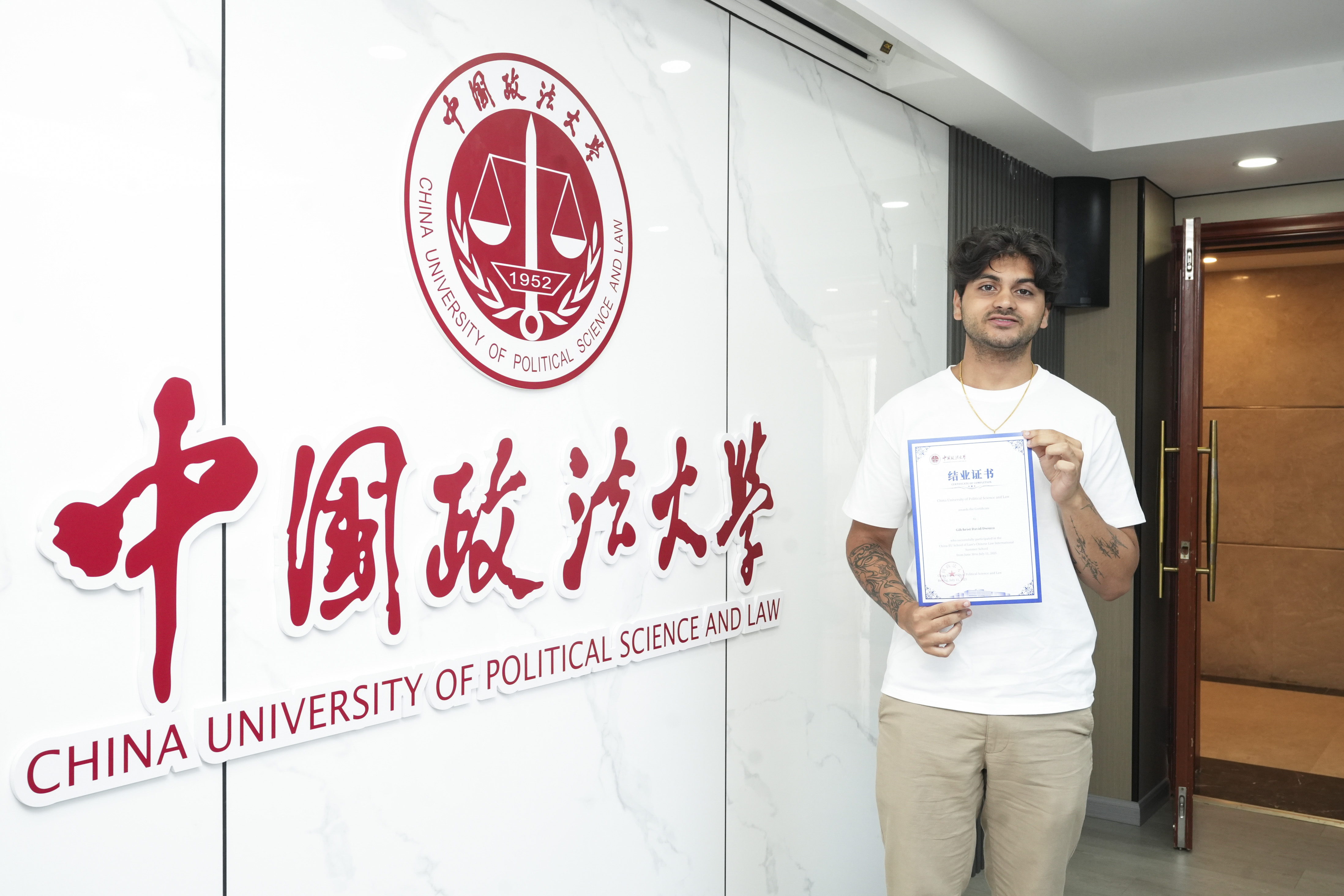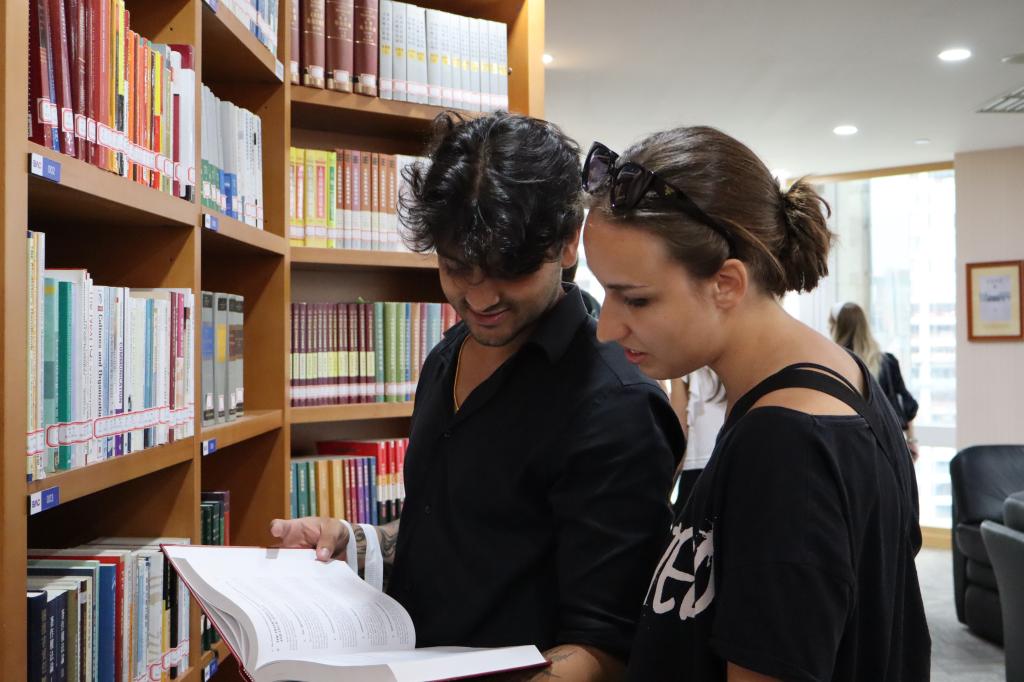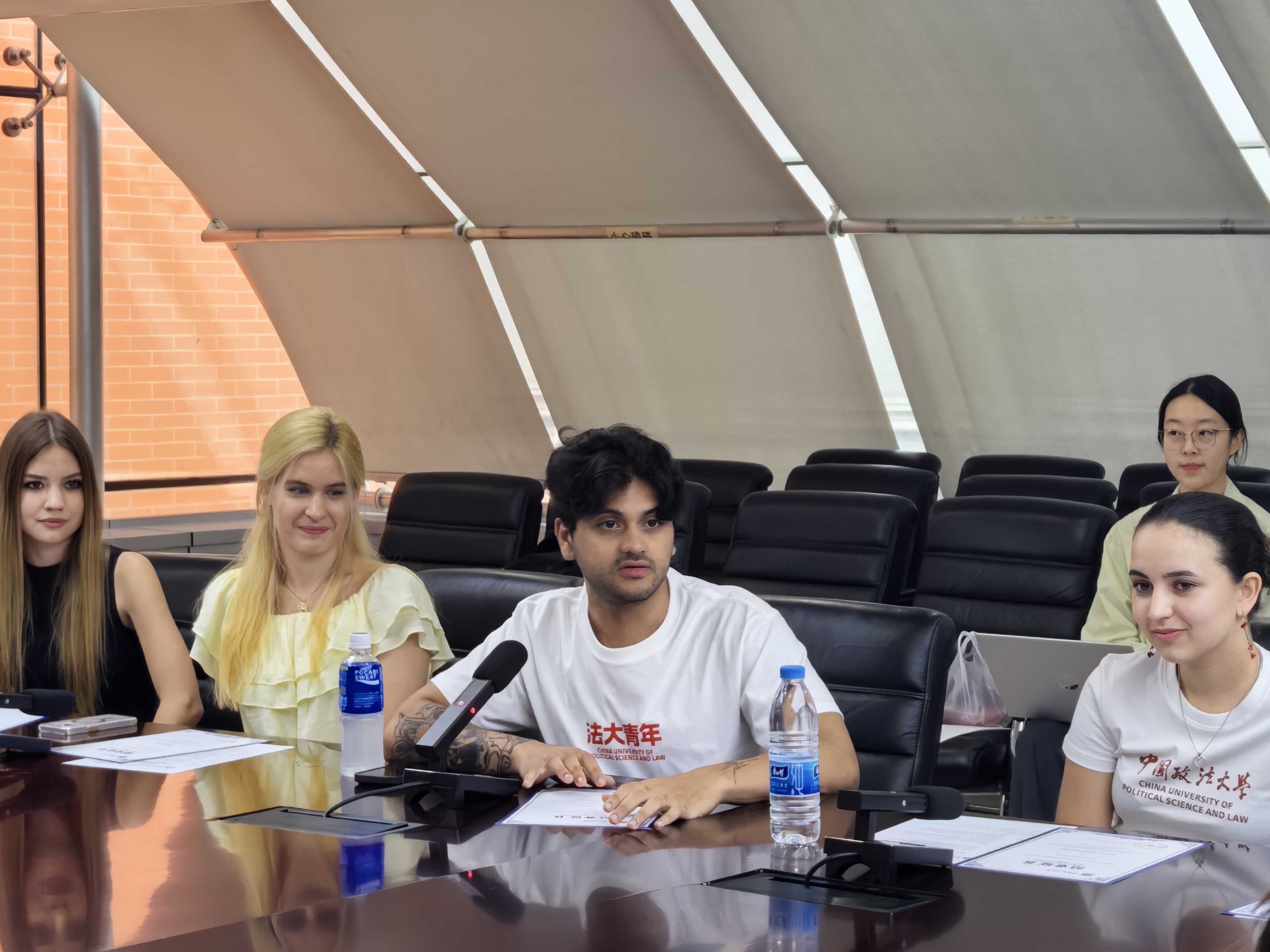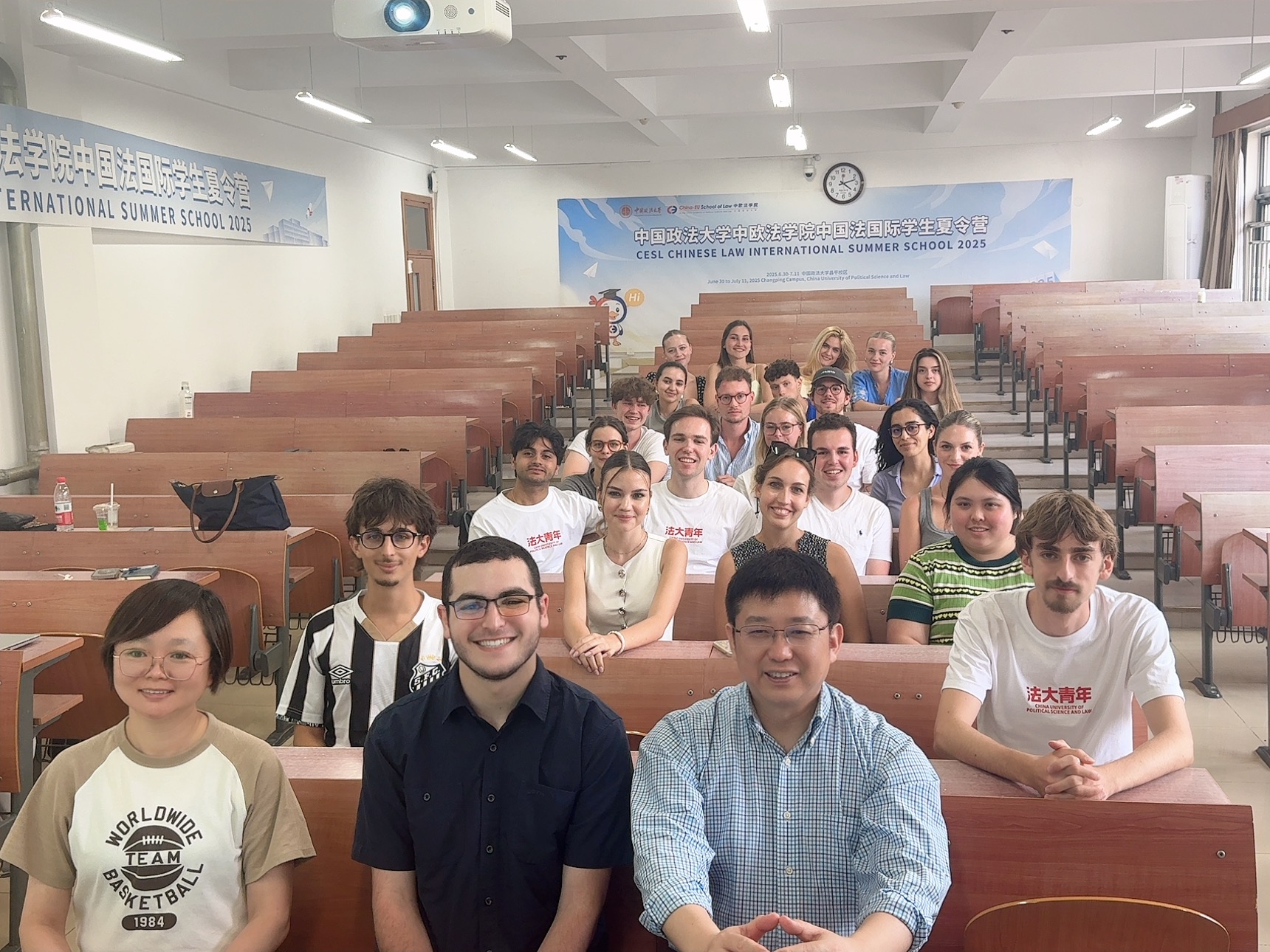Gilchrist Dsouza是英国纽卡斯尔大学法学院的本科生。他参加了2025年中国政法大学中欧法学院中国法国际学生夏令营。在本文中Gilchrist Dsouza将分享他在夏令营的经历。
My recent visit to China was more than just an academic exchange; it was a transformative experience that deepened my understanding of law, governance, and culture in a system often misunderstood from the outside. Spending time on the ground and engaging with Chinese legal scholars and students allowed me to see the country beyond the typical headlines, and I left with a more nuanced, realistic, and respectful view of how China functions.

The legal lectures were particularly eye-opening. As a law student trained in the UK common law tradition, I arrived with certain assumptions about how legal systems should operate primarily grounded in adversarial procedures, judicial independence, and individual rights frameworks. China’s civil law structure, intertwined with socialist legal theory and the role of the Communist Party, challenged my perspective. I learned that while China does not follow a Western liberal model, it has its own internal legal logic that prioritizes order, stability, and collective welfare. The emphasis on mediation and social harmony, for example, reveals a fundamentally different way of thinking about justice and dispute resolution, one that is deeply influenced by Confucian traditions as well as state policy.

What stood out most, however, was how the law in China operates within a larger political and cultural system. The lectures covered not just black-letter law, but also how the legal system serves national development goals, social control, and administrative efficiency. This helped me appreciate the complex interplay between law and governance in a country with 1.4 billion people. While I may not agree with every aspect of the system, I left with a respect for its functionality within its own context.

Outside the classroom, the cultural immersion made this experience even more impactful. From historical landmarks like the Forbidden City and the Great Wall to everyday experiences like street food markets and conversations with local students, I gained a deeper appreciation for China’s rich heritage and modern dynamism. The Chinese people I met from law professors to shop owners were warm, curious, and generous with their time. Their pride in their country was palpable, and their willingness to engage openly with a foreigner studying their system added great value to my journey.

Being in China also made me reflect on my own legal system more critically. It is easy to assume our way is the only or best way, but this trip reminded me that law is ultimately shaped by history, politics, and societal values. Opportunities to visit and speak with leaders in the legal field also greatly heightened my understanding of how the Chinese legal system practically operates.
In sum, this exchange was intellectually and personally enriching. It broadened my legal horizons, exposed me to new ways of thinking, and gave me a fuller, more satisfying realization of what China is not just in theory, but in lived reality. I am grateful for the opportunity and hope to continue building on this experience in my future studies and professional life.
图文:Gilchrist Dsouza
助理编辑:2024级双硕士 张心仪
责任编辑:马安娜
往期推荐:
2025年中国政法大学中欧法学院中国法国际学生夏令营顺利开营
遇见·中欧 | ① Pawel Mateusz Gadocha校友在中欧法学院的留学故事
遇见·中欧 | ② Emma Bakos在中欧法学院夏令营的故事
遇见·中欧 | ③ Christina Boyksen:从汉堡到北京:拓展法律视野
遇见·中欧 | ④ Choo Shermane:以法为舟楫,连接文明:我在中国政法大学中欧法学院的暑期研习之旅
遇见·中欧 | ⑤ Julian Patz:在中欧法学院夏令营的故事
遇见·中欧 | ⑥ Yitzchak Isaac Small:在中欧法学院夏令营的故事
遇见·中欧 | ⑦ Marie Steffenhagen:在中欧法学院夏令营的故事
遇见·中欧 | ⑧ Taissia Haas:在中欧法学院夏令营的故事
